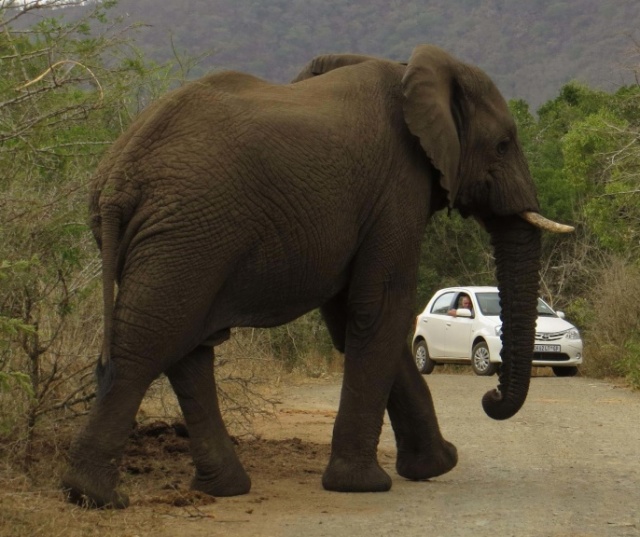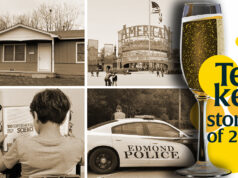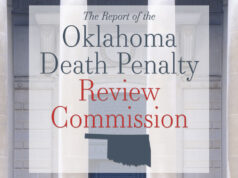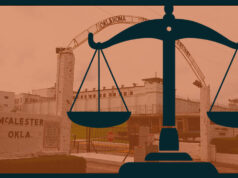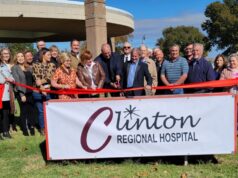I am 32 years old, and, earlier this year, I completed and submitted my voter registration form. It wasn’t the first time I had filled one out and sent it in. In fact, I have been registered to vote since I turned 18.
All I intended to do this time was simply update my address, but as I was completing the document, I realized something surprising.
I realized I am not a Republican anymore.
I have lived my entire life in Oklahoma, and for as long as I can remember, I had always identified with the Republican Party. My parents were registered Republicans, as were my grandparents, and everyone I knew seemed to be a Republican.
The older I became, the more militant my beliefs became. In high school, I almost broke up with one of my best friends when he told me he changed his affiliation to the Democratic Party. (Sorry, Ryan!) In college, I listened religiously to Rush Limbaugh and even spent the entire drive from Stillwater to OKC arguing disgustedly with a friend because her position on the issues was too liberal (Sorry, Grace!).
I voted for George W. Bush. Twice. I even voted for John McCain. In a one-on-one conversation, I had an OSU professor tell me the often used quote, “If you are young and Republican you must have no heart, but if you are old and liberal you must have no money.” Although I was young and had no money, I took that as a compliment. I figured I was just that much ahead of my peers.
So what happened? How could such a conservative prodigy fall so far? Well, my only explanation is that gradually, over a period of years, the world became less black and white. Small, subtle and seemingly inconsequential things happened in my life that forced me to step outside of the little bubble that encapsulated my small world. As a result, I altered my perceptions, beliefs and opinions.
Here’s one example: In 2008, my wife accepted a job in our state’s largest women’s correctional facility. Before that, I had intense opinions about the state of Oklahoma’s prisons, the appeals process, the death penalty and prisoner rights. I had absolutely no concern for inmate rehabilitation; I felt sentencing was too lenient and that conditions in prison were too accommodating and pleasant.
Once my wife began working there, she started to share some of these women’s stories with me. I also began to pay more attention when I would see articles and news stories about prisons and inmates. I read some books. Over time, all of these issues became less figurative and more personal. I learned that Oklahoma incarcerates more women per capita for longer periods than almost every other state in the country. I learned about restorative justice. The more I was exposed to these issues, the harder it was for me to justify my previously harsh opinions.
Another example of an innocuous event that changed my beliefs on an issue would be when one of my good friends decided to move to San Antonio and get his master’s in health care administration. As he completed his graduate degree and began his career in hospital administration, we would periodically have discussions regarding the state of health care in the U.S.
Prior to this, I was convinced that we had the greatest health care system in the world, and that it was important for me to be ever vigilant against the threat of “socialized” medicine. This was before “Obamacare,” but I’m sure I would have been aggressively opposed to that legislation had it been proposed back then. Over the course of several years and many conversations, I was able to learn from my friend about the inner workings of our health care system and about the places where it falls short. (I would encourage anyone who is interested to read Healing of America by T.R. Reid.)
During that time, I volunteered at several of the free Remote Area Medical clinics that were held at the Oklahoma State Fairgrounds. (For full disclosure, NonDoc’s editor in chief organized these health care events for his previous job, and that’s how we met. He has handed the Oklahoma arm of RAM off to some folks in southeastern Oklahoma.)
At RAM clinics, I saw firsthand the segment of our population that had been forgotten by the “best health care system in the world.” More than 1,000 people per day would line up around 2 a.m., seeking dental care, new glasses and/or cancer-detecting Pap smears from RAM volunteers. I worked in the optical lab, making hundreds of pairs of prescription glasses for everyday Oklahomans, and I was simply stunned by how ignorant I had been about the overwhelming need for drastic health care reform.
These are only a couple examples of the many small events and experiences over the past decade that profoundly changed who I am and what I believe. My identity as a Republican had been fundamental to who I was as a person, but my transition from the political right to the political left was so gradual that I didn’t even notice it happening until it came time to update my voter registration.
Reflecting back, although it can be hard at times, I don’t think change is bad. Getting outside of our daily routines, meeting new people, reading books, asking questions and listening to many voices are all ways to grow and develop as a person.
I’ve heard it said that who we are today is a sum total of our past experiences. If that is the case, I want to experience as much as possible. If I can, it should be interesting to see what sort of changes the next 10 years have in store.








